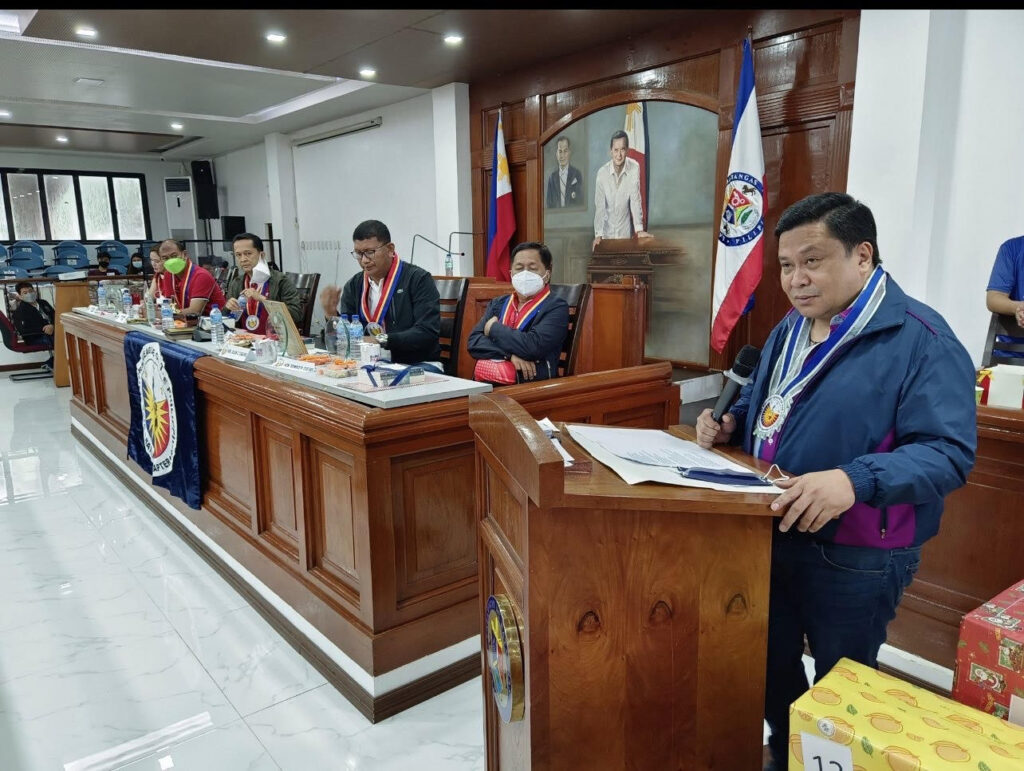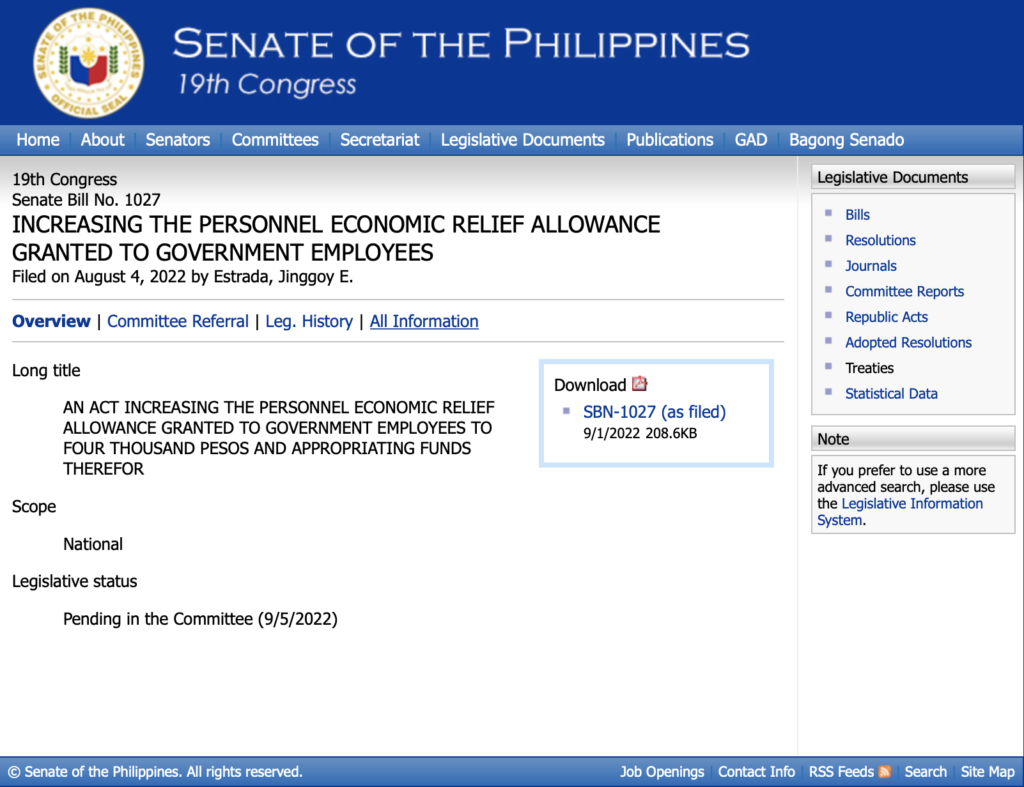Senator Jinggoy Estrada on Sunday, September 11 urged the government to double the amount of financial subsidy to state workers to help them augment their income amid the continuing rise of oil and basic necessities.

Estrada, who chairs the Senate Committee on Labor, Employment and Human Resources Development said the current relief allowance given by the state to government workers is insufficient to cover the continuing rise in the cost of living aggravated by the spike in oil prices.
The senator said it is high-time that the government’s financial assistance to state workers through the Personnel Economic Relief Allowance (PERA) be increased from P2,000 to P4,000 per month.
“Napapanahon na rin na itaas ito sa P4,000 kada buwan para mapunan ang ilang gastusin ng mga manggagawa sa gobyerno na kadalasang tumutugon sa mga pampublikong tungkulin lalo na sa panahon na may krisis at kalamidad (It’s high time we increase it to P4,000 per month so state workers can cope especially in times of crisis and calamity since they are the ones at the frontlines of public service),” Estrada said.
For this purpose, Estrada filed Senate Bill No. 1027, proposing the grant of an additional P2,000 in the monthly PERA of government employees and rename it as Augmented Personnel Economic Relief Allowance (APERA).

Under the bill, the beneficiaries include military and uniformed personnel as well as civilian government employees occupying regular, contractual, or casual positions, whether appointive or elective positions.
But those stationed abroad who are already receiving overseas allowances shall not be entitled to APERA, the senator said.
The PERA was first granted in 1990 to all government employees to cushion the impact of price increases brought about by the Gulf War. The monthly P500 PERA was increased to P2,000 in 2009 to supplement government workers’ salaries due to the rising cost of living.
But with the continued rise of prices of commodities and gasoline, Estrada said the P2,000 allowance “is definitely not enough to help them tide over the financial difficulties.” -Hannah Torregoza/ Manila Bulletin

